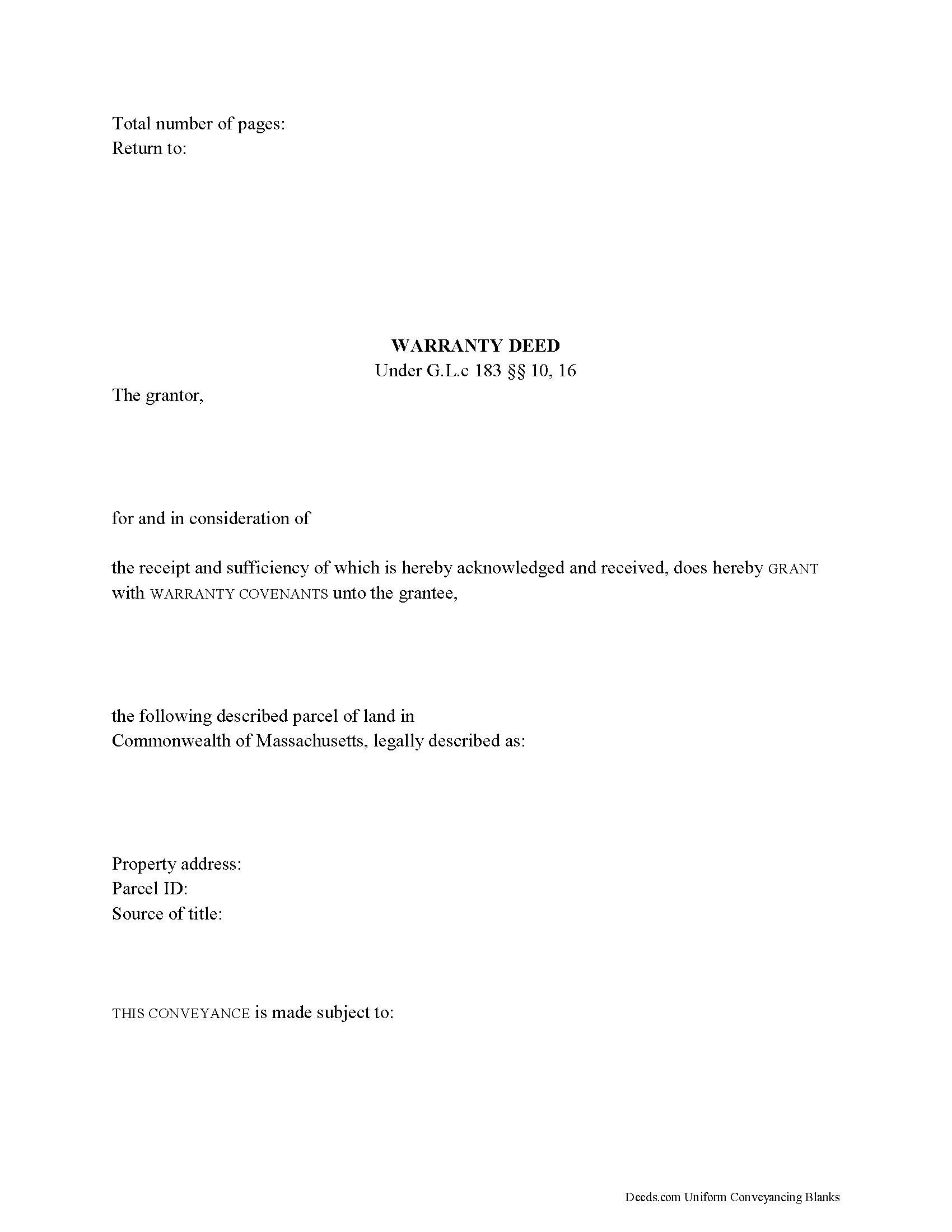Download Massachusetts Warranty Deed Legal Forms

Massachusetts Warranty Deed Overview

Warranty deeds in Massachusetts are statutory forms under G.L.c 183 secs. 10, 16.
A warranty deed transfers the right, title, and interest in real estate from the grantor (seller) to the grantee (buyer) [1]. This deed contains covenants on the part of the grantor that he is lawfully seized in fee simple of the granted premises; they are free from all encumbrances, except as noted in the deed; that he has good right to sell and convey the same; and that he will warrant and defend the same to the grantee and his heirs, successors and assigns forever against the lawful claims and demands of all persons (G,L.c. 183 sec. 10)
In addition to meeting all state and local standards for recorded documents, a lawful deed identifies each grantor and grantee by name, address, and marital status (G.L.c. 183 sec. 6). State law requires that all land records contain information on how the grantee will hold title (G.L.c. 184 sec. 7). For Massachusetts residential property, the primary methods for holding title are tenancy in common, joint tenancy, and tenancy by the entirety. A grant of ownership of real estate to two or more persons, regardless of marital status, is presumed to create a tenancy in common, unless the deed expressly states otherwise (G.L.c. 184 sec. 7).
As with any conveyance of real estate, a warranty deed requires a complete legal description of the parcel. The deed must state the amount of the full consideration, or the total price paid by the grantee for the transfer (G.L.c. 183 sec. 6). Based on the consideration paid, the seller pays an excise tax (also known as a transfer tax or stamp tax) to the Registry of Deeds office (G.L.c. 64D sec. 1,2).
Record the completed deed at the local County Registry of Deeds office. Some counties (Berkshire, Bristol, Essex, Middlesex, Worcester) are split into two or more recording districts. Make sure to record the deed in the correct recording district. If the deed pertains to registered land, submit the deed to the Registry District of the Land Court. Include all relevant affidavits, forms, and fees along with the deed for recording. For guidance related to supplemental documentation, speak with the local Registry of Deeds office.
This article is provided for informational purposes only and is not a substitute for legal advice. Contact a lawyer with questions about warranty deeds or transfers of real property in Massachusetts.
(Massachusetts WD Package includes form, guidelines, and completed example)